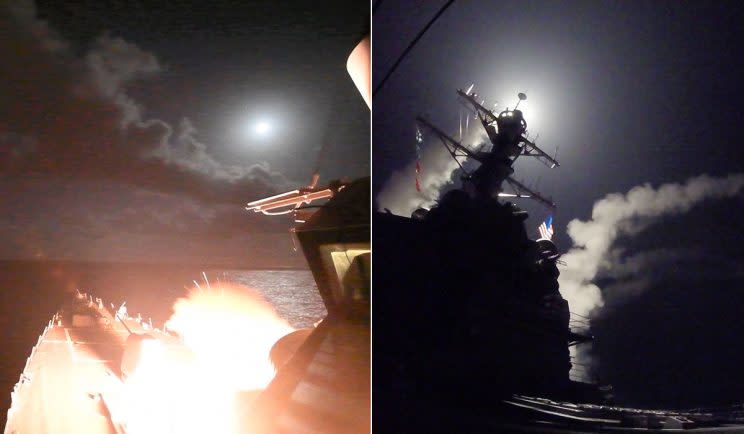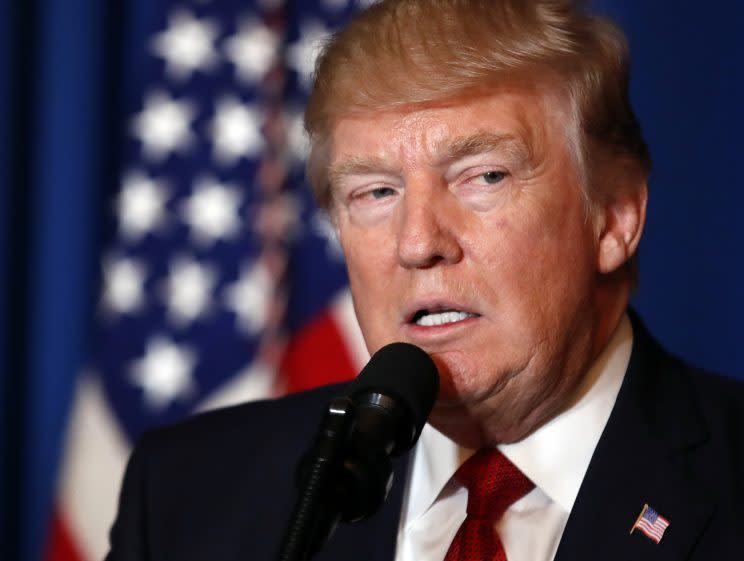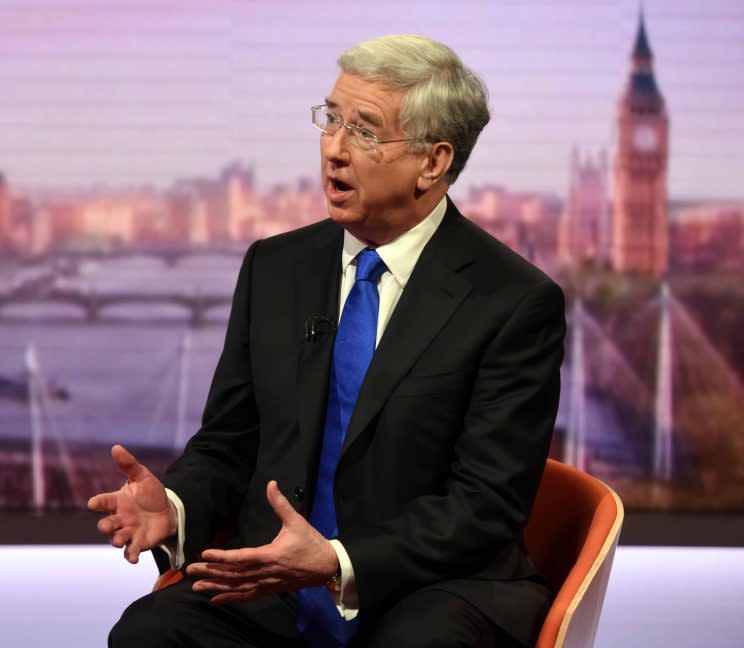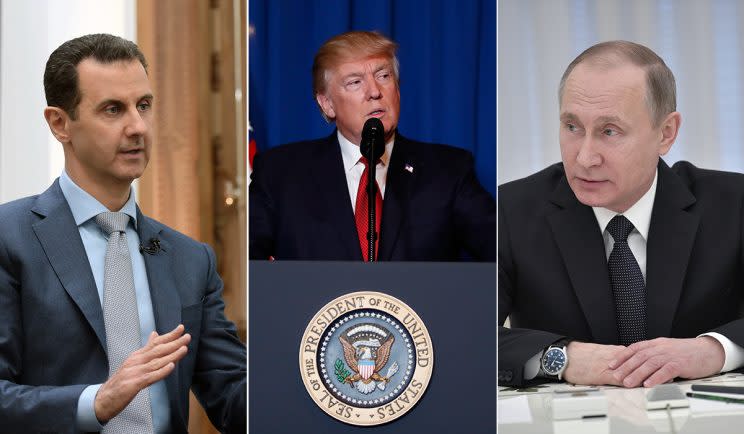Five simple questions about Donald Trump's airstrikes in Syria answered

What happened?
Donald Trump launched an missile attack against a Syrian airbase in the early hours of this morning.
Around 60 Tomahawk missiles were launched from U.S. warships in the Mediterranean and hit a base in the Homs province, destroying the site entirely and killing at least six people.
The American intervention in the civil war was a retaliation against the use of chemical weapons against Syrian citizens, carried out by the Assad regime. Earlier this week at least 80 civilians, including children, were slaughtered in a rebel-held town in north-western Syria.
The atrocity provoked horror and outrage from the international community, including from The U.S. President.
Why has Trump acted?
On the face of it, Trump has said that the video of “beautiful babies’ being brutally murdered” by the Assad regime prompted his retaliatory strike. This, it seems, would suggest that Trump is trying to “send a message” to the Assad regime, warning him that if he goes too far there will be consequences.
You can read The President’s full statement here.
But things are never that straightforward with Trump.

Even by his own standards, Trump doesn’t think military action against Syria is a good idea. He has recently stated on numerous occasion – often via Twitter – that the US should stay out of the troubled country.
Indeed, earlier this week, the US policy in Syria was that President Assad was a useful ally in tackling the threat of international terrorism – most notably ISIS.
So it may not just be the death of “beautiful babies” that have spurred him into action. After weeks in which his poll ratings have tanked, he may view this as a decisive move that will make him look like a strong leader. It will also serve to show how different he is to his predecessor, Obama, whom he often accused of lacking the ability to take decisive action.
MORE: The ‘alt right’ turns on Donald Trump in wake of Syria missile attack
MORE: Is this the end of the Farage/Trump bromance? UKIP MEP slams US President for Syria attack
What about Russia?
Vladimir Putin is not happy.
Moscow has responded by labelling the strikes “an aggression” and warned that they were “a significant blow to Russian-American relations, which were already in a sorry state”.
Putin is also still insisting that there is no evidence suggested President Assad carried out the Sarin gas attack – arguing he would have no reasons to.

Russia is Syria’s strongest ally. Their relations stretch back decades when the Syrian leader – President Hafez Assad, the current leader’s father – struck an arms deal with Moscow. Russia is now Syria’s largest arms supplier.
But Russia also sees Syria as important leverage in its frosty relations with the US. Mr Putin has long been concerned that the US and EU seem intent on helping overthrow dictators they find distasteful. Russia’s backing of President Assad’s regime is a way of telling their Western rivals – some would say enemies – including America that they can’t always get their own way. For Russia, Syria can be viewed as a useful political buffer.
However, although Putin’s tactics are often more aggressive than most other world leaders (his actions in Crimea and the Ukraine are testament to that), on this occasion he is unlikely to make any overt move just yet.
America was very careful in it’s presentation of this latest assault. Rex Tillerson, the US secretary of State, explicitly laid some of the blame at Russia’s door, but was also very careful to stress that this wasn’t a change in policy. For Russia, it may well be a case of waiting and see what, if anything, happens next.

How will this affect the UK?
Michael Fallon, the Defence Secretary has come up in support of the air strikes. He joins Australia, Israel, Turkey, Saudi Arabia, New Zealand and Japan in doing so.
We also know that the White House contacted the UK before the strikes were launched – but did not ask for assistance.
Sir Michael told the BBC that the UK government was given ‘advance notice of the President’s final decision’ following close discussions over the last few days.
But the UK is weak at the moment in terms of Brexit and is seeking to strike a far-reaching trade deal with the US. As a result, Theresa May is certainly not going to be minded to criticise the President –and hasn’t done so so far.
What happens next?
That’s the million dollar question.
As Retired Marine General John Allen, who coordinated the campaign against ISIS during the Obama administration, says, Trump needs to ask himself: ‘How angry do we want to be on this issue? Are we enraged enough morally that we are ready to take action even with the possibility of dead Russians?’

Russia seems willing to wait and see if this is a one-off – according to their public pronouncements at least. While there has been anger and condemnation from Putin, the only retaliatory action Russia has taken to date is to halt its agreement with the US to avoid clashes in Syria airspace.
From America’s perspective, up until now Russia, Assad and the U.S. at least had a common enemy – ISIS. If Trump gets drawn into the Syrian civil war and makes Assad and his forces a specific target, an already messy situation will get only messier.
The other brake on further military action could be Trump’s domestic audience – the US public has rarely been keen on foreign intervention in far-flung countries.
If President Trump’s actions do nothing more than stop Assad using sarin gas on his own citizens, then Trump will consider his strike a success.
But if Russia or Assad decide to retaliate, then who knows what will happen next.

 Yahoo News
Yahoo News 
